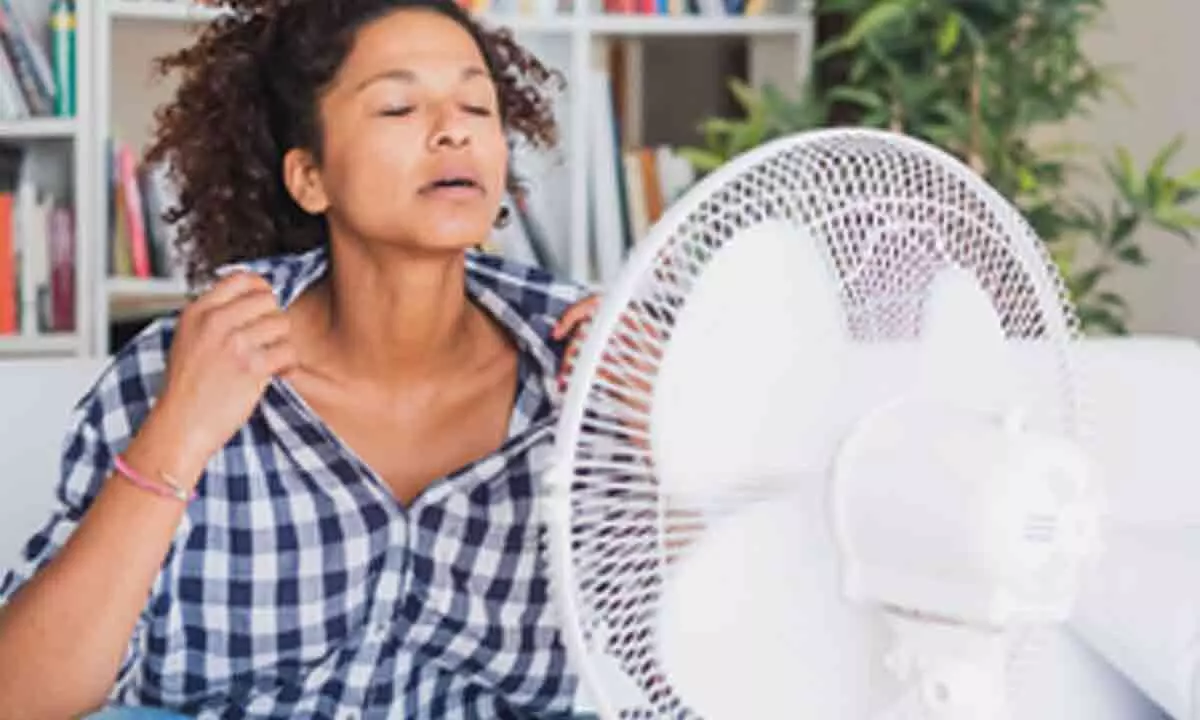UK approves non-hormonal menopause drug to prevent hot flashes
Share :

Health authorities in the UK have approved a menopause drug that can prevent hot flashes, and help scores of women for whom hormone replacement therapy is not suitable.
London : Health authorities in the UK have approved a menopause drug that can prevent hot flashes, and help scores of women for whom hormone replacement therapy is not suitable.
The once daily prescription-only medicine, known as Veozatm (fezolinetant) 45 mg can aid in the treatment of moderate to severe vasomotor symptoms (VMS) associated with menopause.
VMS, also known as hot flashes and/or night sweats, are common symptoms of menopause. Worldwide, more than half of women 40 to 64 years of age experience. VMS can have a disruptive impact on women's daily activities and overall quality of life.
Veoza is a nonhormonal drug that directly acts on the brain to prevent hot flashes. It works by blocking neurokinin B (NKB) binding on the kisspeptin/neurokinin/dynorphin (KNDy) neuron to modulate neuronal activity in the brain's temperature control center (the hypothalamus) to reduce the number and intensity of hot flashes and night sweats.
"Hot flushes and night sweats caused by menopause are common, and can have a significant impact on a woman’s daily life. We are therefore pleased to have authorised Veoza (fezolinetant) for hot flushes and night sweats caused by menopause via our reliance procedure," Julian Beach, the interim executive director of healthcare quality and access at the Medicines and Healthcare Products Regulatory Agency (MHRA), was quoted as saying to the Guardian.
"No medicine would be approved unless it met our expected standards of safety, quality and effectiveness, and we continue to keep the safety of all medicines under close review," he added.
Veoza has been approved for use in women experiencing hot flushes associated with the menopause with immediate effect. However, it has not been studied for safety and efficacy in women over the age of 65, the MHRA said, so no dose recommendation can yet be made for this age group.







